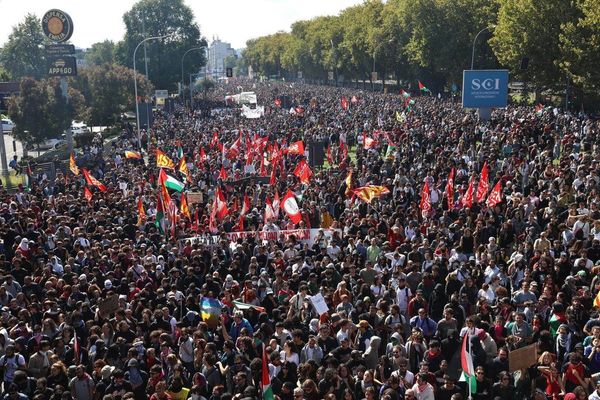A gauge of Chinese stocks in Hong Kong has turned into the world’s worst performer as traders scaled back bets central banks will add to stimulus.
The Hang Seng China Enterprises Index has fallen 4.8 percent this week, the biggest loss among 94 global gauges tracked by Bloomberg. Huatai Securities Co. and PICC Property & Casualty Co. led declines among brokerages and insurers. The measure, which topped all others in the month through last week, added 0.3 percent as of 1:28 p.m. Hong Kong’s markets are closed for a holiday on Friday, while mainland Chinese and Taiwanese markets are shut for the rest of this week.
Volatility returned to financial markets over the past week as the Federal Reserve weighed the case for an interest-rate increase, European Central Bank chief Mario Draghi refrained from adding to stimulus and the Bank of Japan continued to review the benefits of its own policies. Stocks in Hong Kong, where the currency is pegged to the greenback, had outperformed in recent weeks as valuations trailed global peers and mainland investors stepped up purchases via an exchange link with Shanghai.
“It seems investors are taking a profit in Hong Kong,” said Banny Lam, head of research at CEB International Investment Ltd. in Hong Kong. U.S. interest-rate hike expectations are “casting a shadow over markets.”
Volatility Jumps
The Hang Seng China Enterprises gauge rose to 9,573.25. Huatai Securities has sunk 7.8 percent this week, while PICC Property slumped 6.4 percent. The Hang Seng Index climbed 0.4 percent, trimming its weekly loss to 3.4 percent. A gauge of implied volatility on Hong Kong’s benchmark equity index jumped the most since January on Monday, after falling to the lowest since April 2015 at the start of the month.
The rally in H shares was looking frothy last week, with a relative strength index reaching 77 on Friday, above the 70 level that signals to some traders shares are due to decline. The Hang Seng China Enterprises Index plunged the most in seven months on Monday after Boston Fed President Eric Rosengren warned that waiting too long to raise interest rates could overheat the U.S. economy.
A surge in the cost of borrowing the yuan in Hong Kong and better-than-expected Chinese economic data added to concerns liquidity will become less loose. Yuan funding costs jumped to an eight-month high in Hong Kong on Wednesday as the holidays approached and on speculation the People’s Bank of China was intervening to curb bearish bets on the currency. The offshore yuan has gained 0.4 percent this week, poised for the biggest advance since July.
Fed Risk
While inflows from the mainland could support H shares in the next two or three years, there’s downside risk in the coming one to two quarters as a more hawkish Fed spurs outflows from emerging markets, UBS Group AG strategist Lu Wenjie wrote in a note. Short-term risks also include PBOC moves to contain asset bubbles, a new round of yuan weakness and a slump in raw material prices, he said.
Industrial output, retail sales and fixed-asset investment topped estimates, data released on Tuesday show. Aggregate financing jumped to 1.47 trillion yuan ($220 billion) in August, exceeding the 900 billion yuan median estimate in a Bloomberg survey, while new yuan loans also beat forecasts with a surge in mortgages, according to data released after the close of Hong Kong markets Wednesday.
The better-than-expected credit data “will be reflected in the next few months,” said Lam. “In September and October the real economy such as internal demand indicators should exceed expectations. Third-quarter GDP should be better than people expected, which could be a catalyst of a re-rating for the stock market.”
Oil Drop
Energy producers fell after crude dropped on Wednesday amid expectations a global glut will worsen. China Petroleum & Chemical Corp. declined 1.1 percent to a three-month low while Cnooc Ltd. lost 1 percent. Sands China Ltd. jumped 4.1 percent, the most on the Hang Seng Index, to pace casino shares higher.
Cheung Kong Property Holdings Ltd. rose 1.8 percent after billionaire Li Ka-Shing returned to Hong Kong’s housing market with the firm’s purchase of its first plot of residential land in four years.
To contact the reporter on this story: Justina Lee in Hong Kong at jlee1489@bloomberg.net. To contact the editors responsible for this story: Richard Frost at rfrost4@bloomberg.net, Phani Varahabhotla, Robin Ganguly
©2016 Bloomberg L.P.







